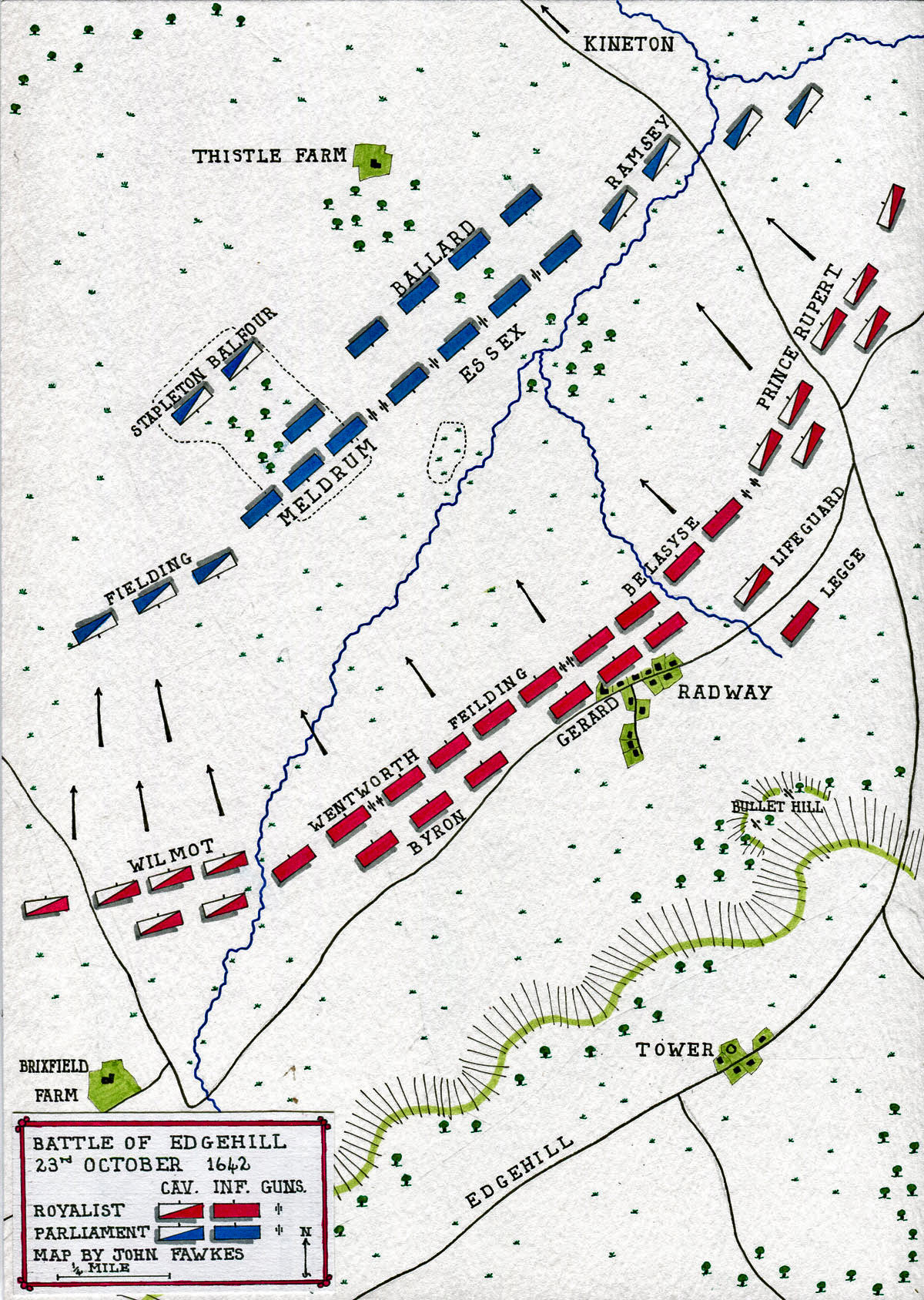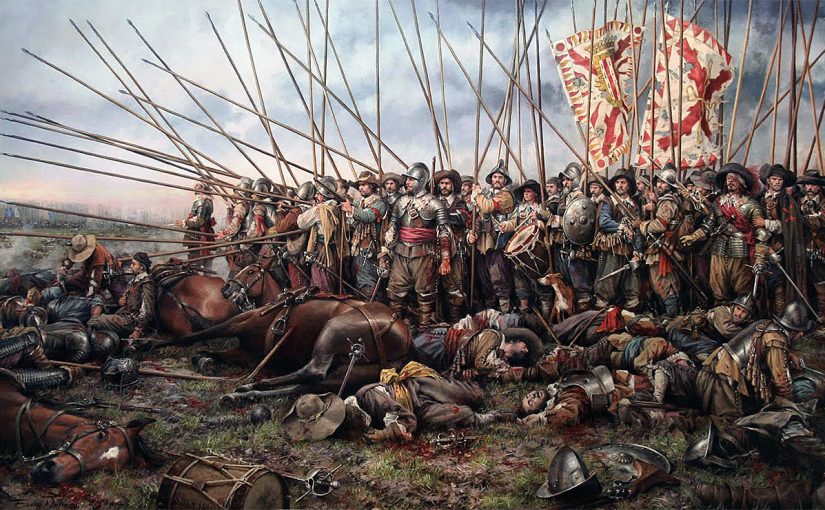At the start of the war, Charles army was in desperate need of men. He went through the north from Nottingham, across to Derby before going down to Wolverhampton and up to Shrewsbury gathering an army along the way. Robert Duvreaux, third Earl of Essex, sent out a Parliamentary cavalry division out, before they were soon encountered by Cavalier forces lead by Prince Rupert of the Rhine and were sent running. Empowered by this initial victory, Charles left Shrewsbury, intending a direct march on London an attempt to strike the heart of the opposition and end the war quickly.
On the way down, he made a stop at Edgecote, where a 4,000 strong brigade would attempt to capture the Parliamentarian city of Banbury. However, they were unaware that Duvreaux was also in the area, attempting to defend Banbury from any possible attack. Before the brigade could be sent out, Charles’ divisions split across the towns. Rupert’s army found a Parliamentary division and found out that Duvreaux’s army was stationed at Kineton. A scout confirmed this and the Royalist army convened at Edgehill, 3 miles south of Kineton

A small but ultimately ineffective artillery barrage proceeded the true battle, whilst a Royalist unit managed to find an ambush unit in the hedgerows. Eventually, the Royalist Cavalry on the right and left charged at the enemy cavalry opposing them on either side. The parliamentary Cavalry were forced to run away from the field and were chased down by the Royalists. Many suspect that if the Royalist cavalry had returned to the battlefield then, the civil war could’ve ended there in a Royalist victory.
However, the infantry soon began to fight, first firing muskets before stabbing each other with their pikes in close quarters combat. By the afternoon, severe casualties had been inflicting on both sides and, before dusk fell, Rupert finally returned from the charge. However, both sides had largely given up the will to fight and stopped fighting once night fell. By the next morning, the Royalists had left the field. The first major battle of the English Civil War was a draw, and the civil war would rage on for another 7 years.
